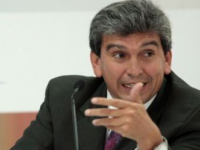February 2024 – @alvaroriosroca – I have repeatedly expressed my opinion that prolonged subsidies to energy end up being disproportionately perverse. Successive governments around the world and especially in the region, mostly of a populist nature, have established and/or maintained prolonged subsidies, sometimes with very sensible and noble intentions, but most of the time merely for the sake of votes and to try to stay in power.
Prolonged energy subsidies take their toll sooner or later and they do so especially when oil, gas and energy prices, as a whole, are high in the international context. We only have to analyze the recent measure in Cuba, where fuel prices have had to rise by 500%, giving a final blow to the impoverished Cuban people who have already suffered shortages for decades.
They also take their toll when Cuba goes from being a producer of oil, gas and electric energy to being a net importer. This is a consequence of not being able to replace costs throughout the production chain to maintain services. This is what happened to Argentina for almost two decades, a situation that is taking a long time to reverse, in spite of having the neat shale of Vaca Muerta.
Now it seems that it is Bolivia’s turn, which is becoming a net energy importer, for not having carried out reforms to replenish gas, condensate and oil reserves in a timely manner. Very soon it will have to import LPG and, as I have said, by 2028/2029, natural gas and possibly electricity at some point, most probably from Argentina. The observed low availability of dollars, without any doubt, is based on having to import between 2,000 and 3,000 million dollars between gasoline and diesel oil, in the last two years, and that will increase year by year. What makes the situation even worse is maintaining a subsidy close to 60%.
Prolonged energy subsidies deteriorate the economies of the countries, which see their coffers bleed to death, state companies collapse, the fiscal deficit rises like foam, shortages occur more and more frequently and dollars evaporate from the Central Banks. When it is time to make adjustments and lift subsidies, citizens and businessmen are not prepared to receive them all at once and very deep social, political and institutional crises are produced.
Prolonged energy subsidies also foster inefficiency and loss of competitiveness in the long term. When prices are kept artificially low, nobody appreciates, energy is wasted and consumption is excessive. There is no signal to take energy efficiency with technology and seriousness, and dilapidation is the way to go. As an Argentine adage used to say: “open the window, it’s too hot here”, when heating was done with derisory natural gas prices.
Another issue is that those who benefit the most from the subsidies are the wealthy and wealthy. Families with two, three or more vehicles, those who travel constantly, those who have heated swimming pools and many other pleasures of high energy consumption. Therefore, those who have the least, those who walk, ride the bus, take the subway, live in a humble room, end up subsidizing those who have more economic resources.
Strong energy subsidies for prolonged periods also lead to shortages, as in the chronic cases of Cuba, Venezuela and Argentina, and very recently in Bolivia. Investments in electric power generation and hydrocarbon exploration are chased away, tariffs and/or prices for transportation and distribution of energy are not adequately remunerated, and services deteriorate.
The higher and more prolonged the subsidy, the more smuggling to neighboring countries with international market prices is encouraged. Mafias are formed and controls never work, because there is an excellent profit in illegal trade. Finally, it does not allow the competitive entry of new and efficient alternative energy technologies, as is the case now of solar and/or wind energy.
Many sharp populist scholars argue that subsidized energy prices are an incentive for development, economic growth and low inflation. This is not true. Countries such as Brazil, Chile, Peru, Paraguay, Uruguay, Costa Rica and others, which do not practice and have not practiced prolonged subsidies, have led and continue to lead economic growth, as well as greater economic and social stability in the region.
Its citizens and entrepreneurs have become competitive, accustomed and adjusted to fluctuations in energy prices. Subsidies are necessary for some emergency or temporary need, but they cannot be maintained forever. In some countries, subsidies are targeted to the most vulnerable. Preferably these targeted subsidies should be in cash and not in kind, because it quickly encourages the black market. For example, in the case of LPG, the equivalent of one month’s consumption can be given to households with low electricity consumption or some other social segment meter.
*Former Minister of Hydrocarbons of Bolivia and current managing partner of Gas Energy Latin America.





